
Taxus baccata
(MRP Inclusive of all taxes)
- Shipping ₹79 for entire order
- Country of origin: India

(MRP Inclusive of all taxes)
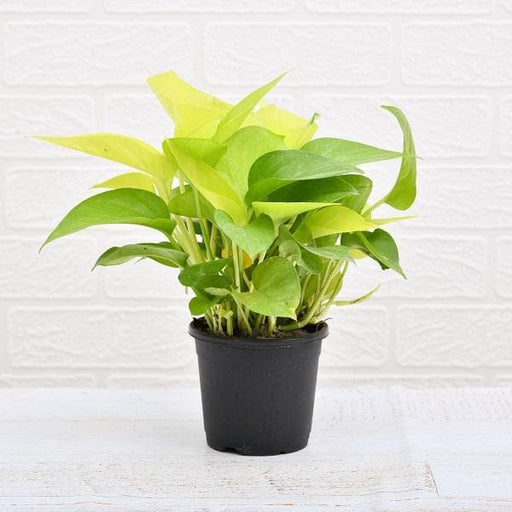 Save 29%
Save 29%
Air Purifier Money Plant with Pot The Air Purifier Money Plant, also known as Pothos or Epipremnum aureum, is a stunning indoor plant that...
View full details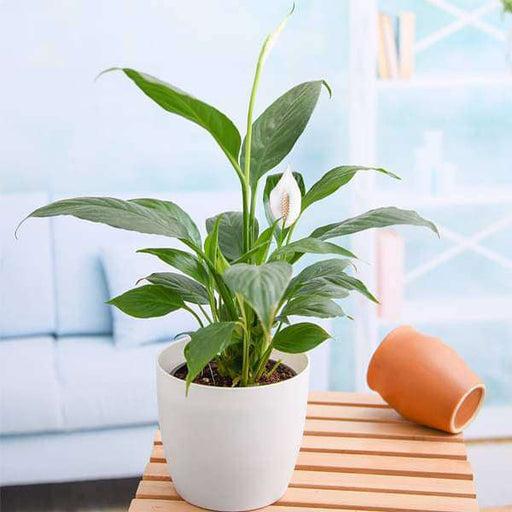
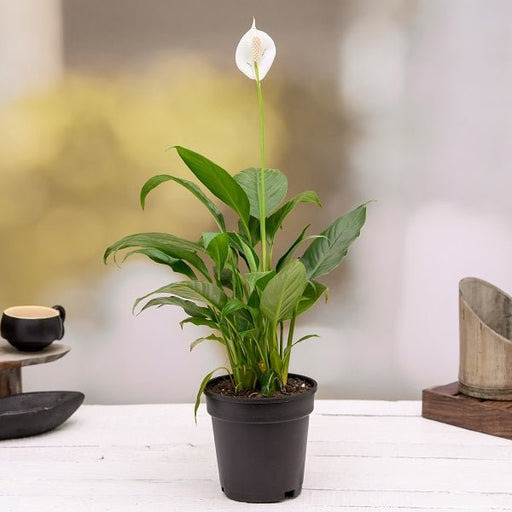 Save up to 15%
Save up to 15%
Peace Lily, Spathiphyllum - Plant The Peace Lily, scientifically known as Spathiphyllum, is a stunning houseplant celebrated for its elegant white...
View full details
 Save 25%
Save 25%
Jasminum sambac, Mogra, Arabian Jasmine - Plant Jasminum sambac, commonly known as Mogra or Arabian Jasmine, is a fragrant flowering plant...
View full details
 Save 18%
Save 18%
Combo Constituents Includes the Parijat Tree (Night-Flowering Jasmine), a culturally significant plant with fragrant flowers. Description The Pari...
View full details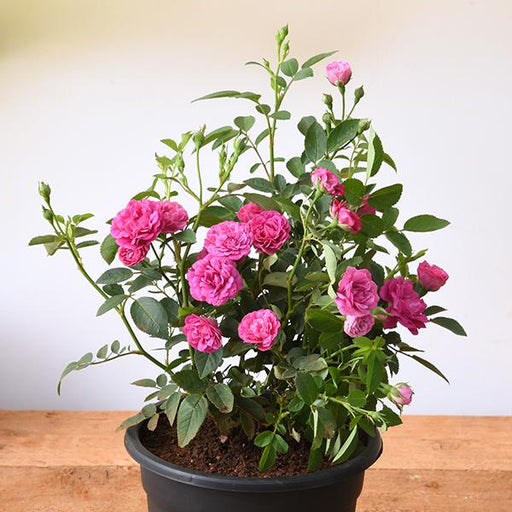
 Save 25%
Save 25%
Miniature Rose, Button Rose (Any Color) - Plant The Miniature Rose, also known as the Button Rose, is a charming and compact flowering plant that ...
View full details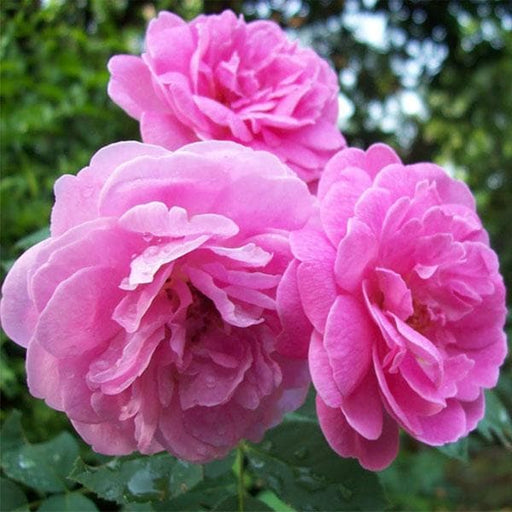 Save 25%
Save 25%
Damascus Rose, Scented Rose (Any Color) - Plant The Damascus Rose, also known as Rosa damascena, is a timeless symbol of beauty and romanc...
View full details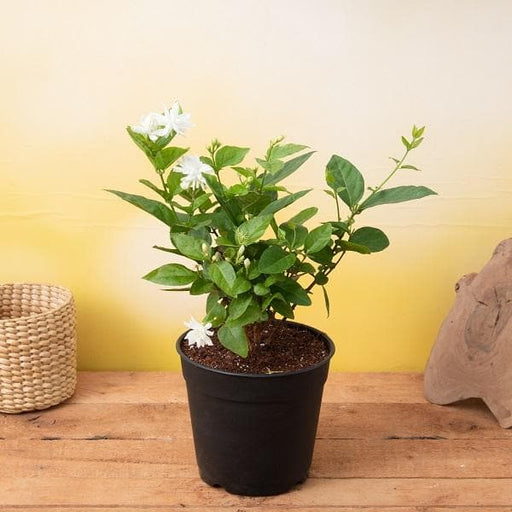
 Save 17%
Save 17%
Beautiful Fragrant Mogra, Arabian Jasmine Plant with Pot The Beautiful Fragrant Mogra, also known as Arabian Jasmine (Jasminum sambac), is...
View full details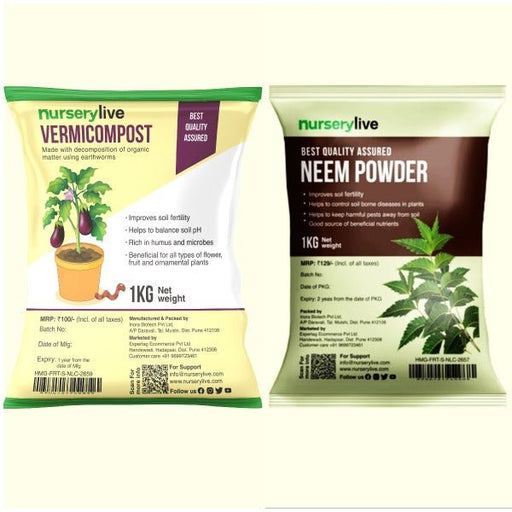 Save 15%
Save 15%
Pack of Vermicompost and Neem Cake for House Plants Transform your indoor garden with our premium Pack of Vermicompost and Neem Cake, spec...
View full details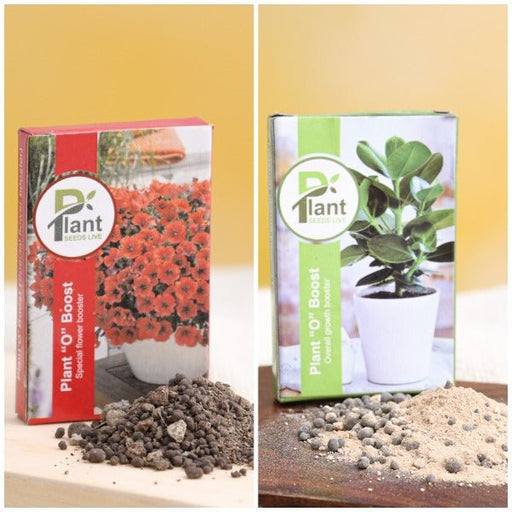
Pack of Plant Growth and Flower Boosters Unlock the full potential of your garden with our Pack of Plant Growth and Flower Boosters! This ...
View full details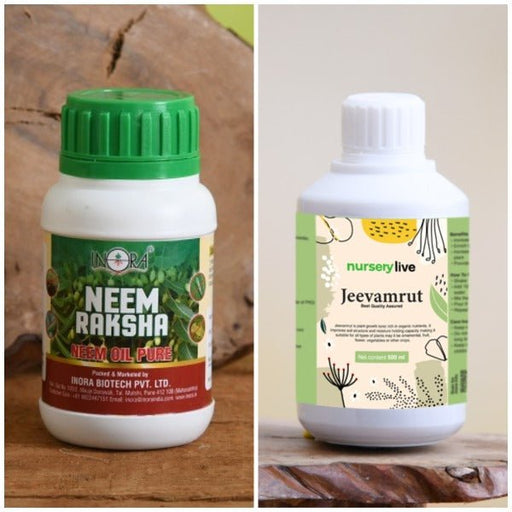 Save 38%
Save 38%
Combo of Jeevamrut and Neem Raksha for Easy Growth and Protection of Houseplants Transform your indoor garden with our exclusive combo of ...
View full details Save 22%
Save 22%
Plant Nutrients Kit (Pack of 16) for a Healthy Garden Transform your garden into a lush paradise with our Plant Nutrients Kit, featuring 1...
View full details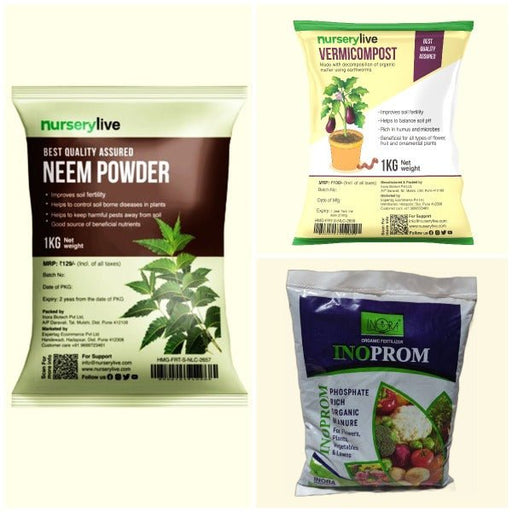 Save 16%
Save 16%
Combo of Top Plant Fertilizers Elevate your gardening game with our exclusive Combo of Top Plant Fertilizers, featuring two bags of premiu...
View full details Save 24%
Save 24%
Pack of 4 Additives to Make Soil Healthy and Nutrient Rich Transform your garden into a thriving ecosystem with our Pack of 4 Additives de...
View full details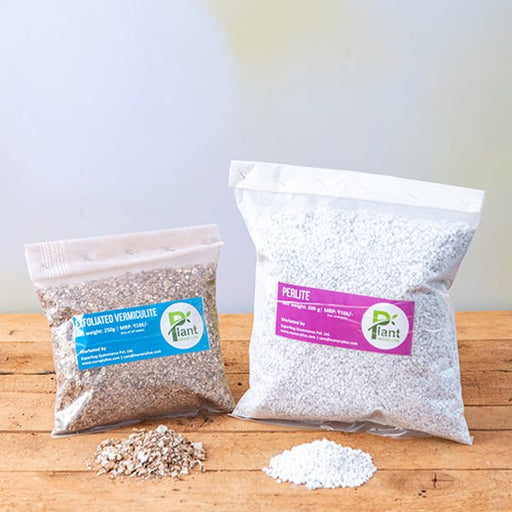 Save 30%
Save 30%
Transform your gardening experience with our premium Combo of Perlite and Vermiculite. This unique blend is designed to enhance soil aeration and ...
View full details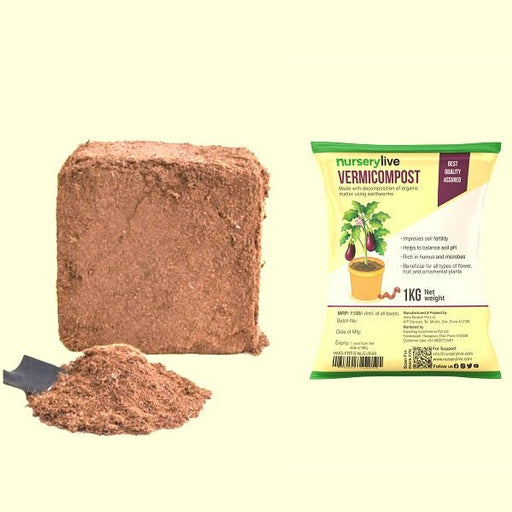 Save 27%
Save 27%
Combo of 2 Vermicompost and Cocopeat - Enrich Your Soil Naturally! Transform your garden into a thriving ecosystem with our Combo of 2 Ver...
View full details
 Save 35%
Save 35%
Best 6 Plants for Perfect Indoor Garden Transform your living space into a lush oasis with our curated collection of the Best 6 Plants for a...
View full details
 Save up to 50%
Save up to 50%
Mini Succulent Garden Pack Transform your space with our Mini Succulent Garden Pack, featuring a delightful collection of 4 any variety beautiful s...
View full details
 Save 30%
Save 30%
5 Best Fragrant Plants Transform your garden or indoor space into a fragrant paradise with our curated selection of the 5 Best Fragrant Plants. Th...
View full details
 Save 24%
Save 24%
Set of 2 Bonsai Looking Grafted Adeniums Transform your indoor or outdoor space with our exquisite Set of 2 Bonsai Looking Grafted Adenium...
View full details Save 45%
Save 45%
Top 4 Die Hard Succulents Pack Transform your indoor or outdoor space with our Top 4 Die Hard Succulents Pack, featuring a curated selecti...
View full details
 Save 30%
Save 30%
5 Best Indoor Plants Pack Transform your living space into a lush oasis with our '5 Best Indoor Plants Pack.' This carefully curated collection fe...
View full details
 Save 25%
Save 25%
Set of 4 Evergreen Air Purifier Plant Pack Transform your indoor space into a lush, green oasis with our Set of 4 Evergreen Air Purifier Pla...
View full details| SrNo | Item Name |
|---|---|
| 1 | Taxus baccata |
Taxus baccata, commonly known as the English Yew, is a coniferous tree native to Europe, North Africa, and parts of Asia. Renowned for its dense, evergreen foliage and rich history, this tree can live for over 2,000 years, making it a symbol of longevity and resilience. Its dark green needles and red berries add aesthetic value to gardens and landscapes, while its wood is prized for its strength and beauty.
What makes Taxus baccata special is its versatility. It can be shaped into hedges, topiaries, or left to grow naturally, making it a favorite among gardeners and landscapers. Additionally, the tree has significant historical importance, often found in churchyards and ancient sites, symbolizing immortality and protection.
One of the most remarkable features of Taxus baccata is its ability to thrive in various soil types and conditions. Its adaptability allows it to flourish in both urban and rural settings, providing shelter and food for wildlife while enhancing biodiversity.
Taxus baccata plays a crucial role in its ecosystem, providing habitat and food for various bird species. Its dense foliage offers shelter, while the berries serve as a food source. Additionally, its ability to thrive in poor soil conditions makes it an excellent choice for erosion control and landscape restoration projects.
If you think caring for a Taxus baccata tree is like raising a pet rock, think again! This evergreen beauty requires a bit of TLC. Regular pruning keeps it looking sharp, while well-drained soil ensures it doesn’t drown in its own glory. Water it just enough to keep it happy, but don’t turn it into a swamp. Remember, a little love goes a long way in making your Taxus the envy of the neighborhood!
Patience is a virtue, especially when waiting for your Taxus baccata to strut its stuff. This tree isn’t in a hurry; it grows at a leisurely pace of about 12 to 24 inches per year. So, if you’re looking for instant gratification, you might want to consider a fast-growing weed instead. But hey, good things come to those who wait, right?
The Taxus baccata isn’t just a pretty face; it’s got skills! This tree is a superstar in landscaping, providing a lush backdrop for your garden drama. Its dense foliage makes it perfect for hedges, while its wood is prized for crafting fine furniture and even archery bows. Who knew a tree could be so versatile? It’s like the Swiss Army knife of the plant world!
Beware, my friends! The Taxus baccata is not just a pretty tree; it’s also a bit of a drama queen. Every part of it, except for the fleshy arils, is toxic. So, if you have pets or small children, keep an eye on them. It’s like having a beautiful but moody roommate—looks great but can be dangerous if you don’t know the rules!
Variety is the spice of life, and the Taxus baccata has plenty to offer! From the classic English Yew to the more compact varieties, there’s a Taxus for every garden personality. Whether you want a towering sentinel or a petite shrub, these trees come in all shapes and sizes. It’s like a tree fashion show, and they’re all strutting their stuff!
If you want your Taxus baccata to thrive, you better roll out the red carpet for its soil! This tree prefers well-drained, slightly acidic to neutral soil. It’s not a fan of soggy feet, so make sure it has a cozy spot to grow without turning into a mud bath. Think of it as a diva that demands the perfect stage for its performance!
Pruning a Taxus baccata is like giving it a stylish haircut. You want to keep it looking sharp without going overboard. Late winter or early spring is the best time to snip away those unruly branches. Just remember, a little trim can go a long way in maintaining its elegant silhouette. It’s all about that tree-tastic style!
Talk about longevity! The Taxus baccata can live for hundreds of years, making it the Methuselah of the tree world. While you might be planning your next vacation, this tree is busy plotting its next century. It’s like the wise old sage of the forest, offering wisdom and shade for generations to come. Who wouldn’t want a tree with such staying power?
The Taxus baccata loves to hang out in cool, temperate climates. You’ll find it thriving in woodlands and gardens across Europe and parts of Asia. It’s like the introverted friend who prefers the cozy corners of the forest rather than the bustling city. So, if you’re looking to create a serene garden retreat, this tree is your go-to companion!
Want to grow your own Taxus baccata? Get ready for a little botanical adventure! You can propagate this tree through seeds or cuttings, but patience is key. It’s like waiting for a slow-cooked meal; the results are worth it! Just make sure to provide the right conditions, and soon you’ll have a mini forest of your own.
If you’re looking to elevate your landscaping game, the Taxus baccata is your secret weapon. Its lush green foliage and elegant form make it a favorite for creating stunning focal points or privacy hedges. It’s like the cherry on top of your garden sundae, adding that extra flair that makes your outdoor space the talk of the town!
Taxus baccata, or the English yew, is a coniferous tree known for its dark green foliage and red berries. It’s like the evergreen celebrity of the plant world, often found in gardens and churchyards, providing a touch of elegance and a hint of mystery. Just don’t confuse it with a Christmas tree!
Taxus baccata thrives in temperate regions, particularly in Europe and parts of Asia. It loves well-drained soil and can tolerate shade like a pro. Think of it as the introverted plant that prefers cozy corners over the spotlight, making it a perfect fit for your garden’s quieter spots.
Yes, Taxus baccata is toxic, especially its leaves and seeds. Consuming them can lead to serious health issues, so keep your curious pets and children at bay. It’s like that mysterious friend who seems charming but has a dark side—best admired from a distance!
Taxus baccata is a slowpoke in the growth department, averaging about 12 to 24 inches per year. Patience is key with this tree; it’s the tortoise of the plant world. But once established, it can live for centuries, making it a long-term investment in your garden’s future.
Taxus baccata is not just a pretty face; it’s used for hedging, topiary, and even in traditional medicine. Its wood is prized for crafting fine furniture and musical instruments. Think of it as the Swiss Army knife of trees—versatile and always ready to impress!
Absolutely! Taxus baccata loves a good haircut. Pruning helps maintain its shape and encourages bushier growth. Just remember to wield your shears with care; it’s not a wild party, but a refined trim. Your yew will thank you with lush foliage and a well-groomed appearance.
Taxus baccata prefers well-drained, slightly acidic to neutral soil. It’s not picky, but it does enjoy a good drainage system—think of it as the diva of the plant world, demanding just the right conditions to thrive. Too much water, and it’ll throw a tantrum!
Taxus baccata is the Methuselah of trees, often living for over 1,000 years. It’s like the wise old sage of the forest, witnessing centuries of history. Plant one, and you’re not just adding greenery; you’re inviting a timeless companion into your garden.
Yes, Taxus baccata is generally deer resistant. Deer tend to avoid it, perhaps due to its toxic nature. It’s like the tree version of a bouncer at a club—keeping unwanted guests at bay while maintaining an air of exclusivity in your garden.
Propagating Taxus baccata can be done through cuttings or seeds. For cuttings, take a healthy branch, dip it in rooting hormone, and plant it. It’s like giving your yew a chance to clone itself—just make sure it doesn’t get too carried away with the family tree!
Taxus baccata can attract pests like scale insects and spider mites. They’re the uninvited guests at the plant party, but with proper care and occasional pest control, you can keep them in check. Think of it as maintaining a guest list—only the best for your yew!
Yes, Taxus baccata is a shade-loving superstar! It can thrive in partial to full shade, making it perfect for those tricky spots in your garden. It’s like the introverted friend who prefers cozy gatherings over wild parties—always ready to shine in the right light!